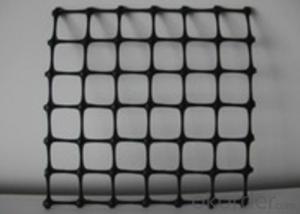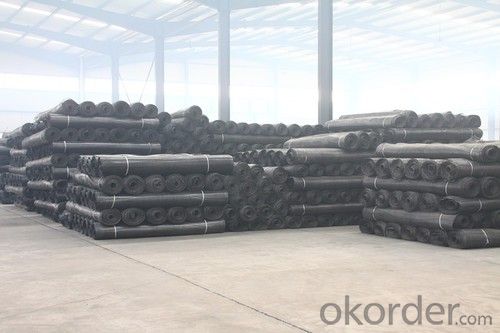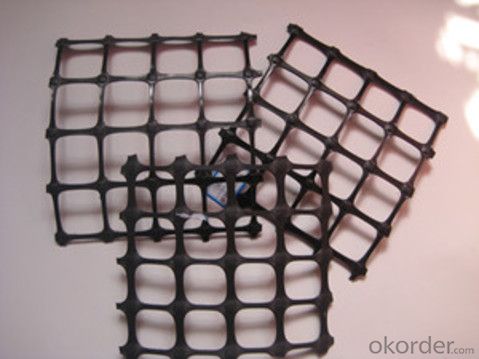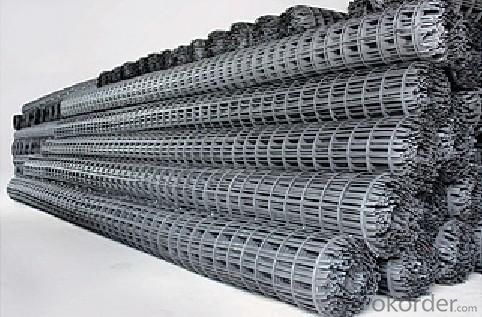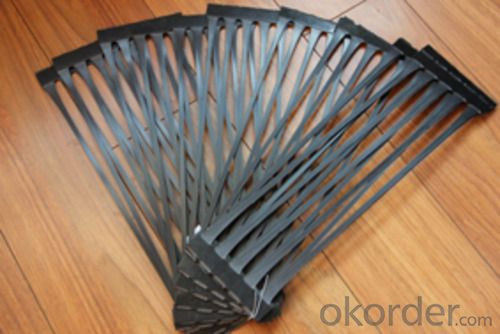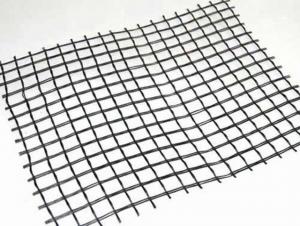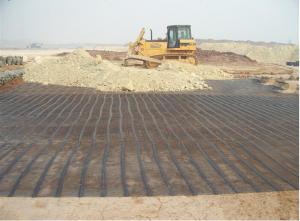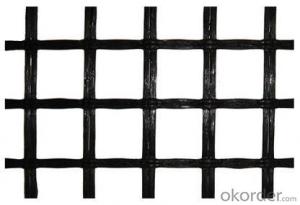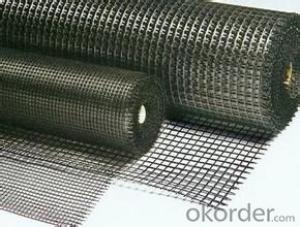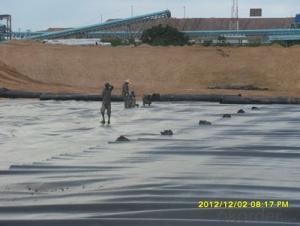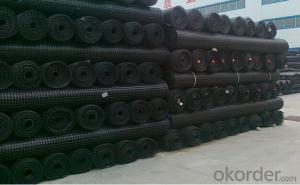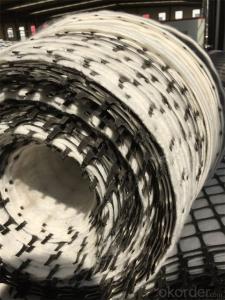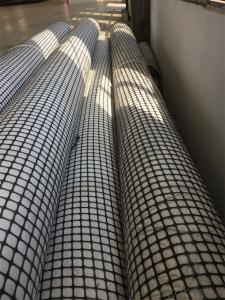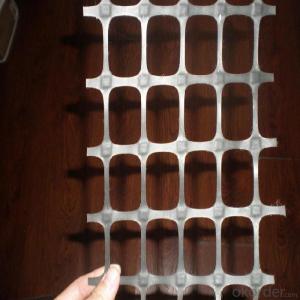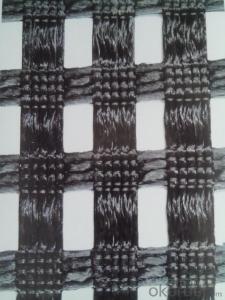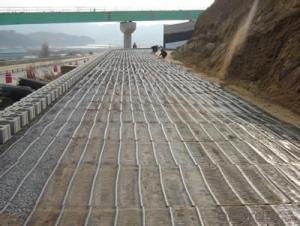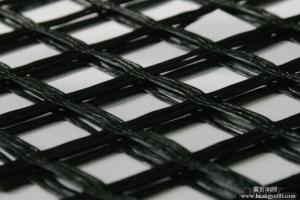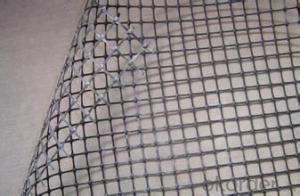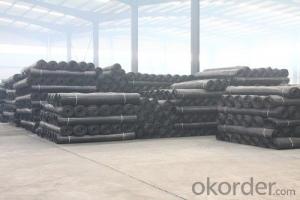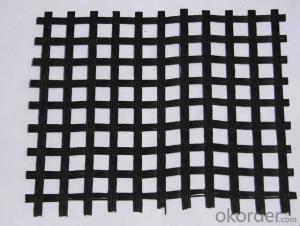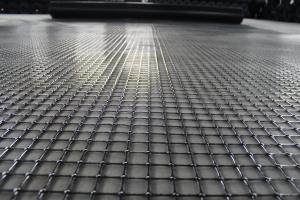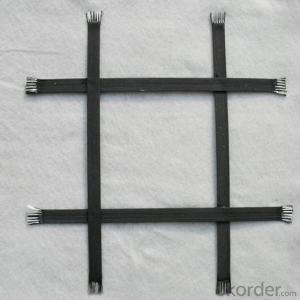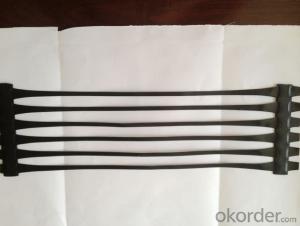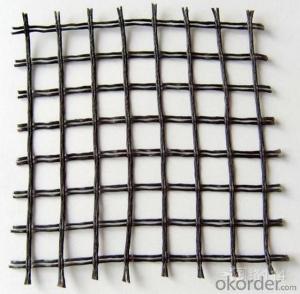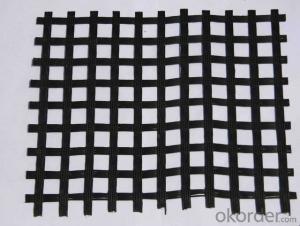CE Certified Polypropylene Plastic Biaxial Geogrids for Road Construction - Oklahoma USA
- Loading Port:
- Qingdao
- Payment Terms:
- TT OR LC
- Min Order Qty:
- 10000 g/m²
- Supply Capability:
- 600000 g/m²/month
OKorder Service Pledge
OKorder Financial Service
You Might Also Like
Structure of Polypropylene Plastic Biaxial Geogrids Description:
Biaxial geogrids can be used to enhancement of permanent bearable toft including roads and railways embankment, slopes, tunnel, airfields, parks, docks and ground prevent tunnel from crack occurring.Further solidity slopes to proof water and soil from losses.
Main Features of Polypropylene Plastic Biaxial Geogrids:
Enhance the bearing capacity of road foundation and extend the duration of roads.
High strength,excellent tenacity
Prevent road surface from collapse, crack and being dirty.
Be convenient for construction, timesaving and cut down the cost of maintenance.
Creep,corrosion and abrasion resistance
Polypropylene Plastic Biaxial Geogrids Images
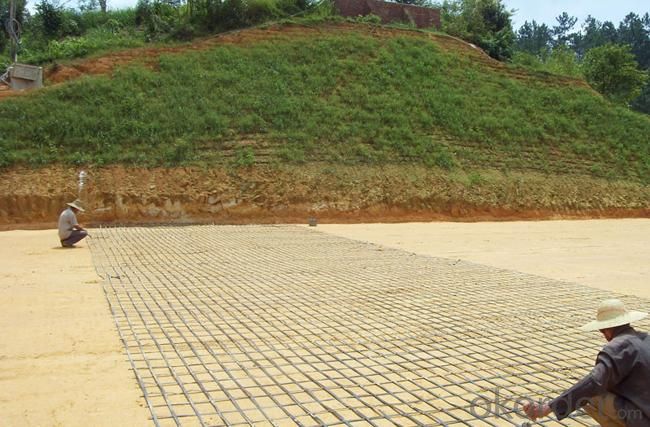
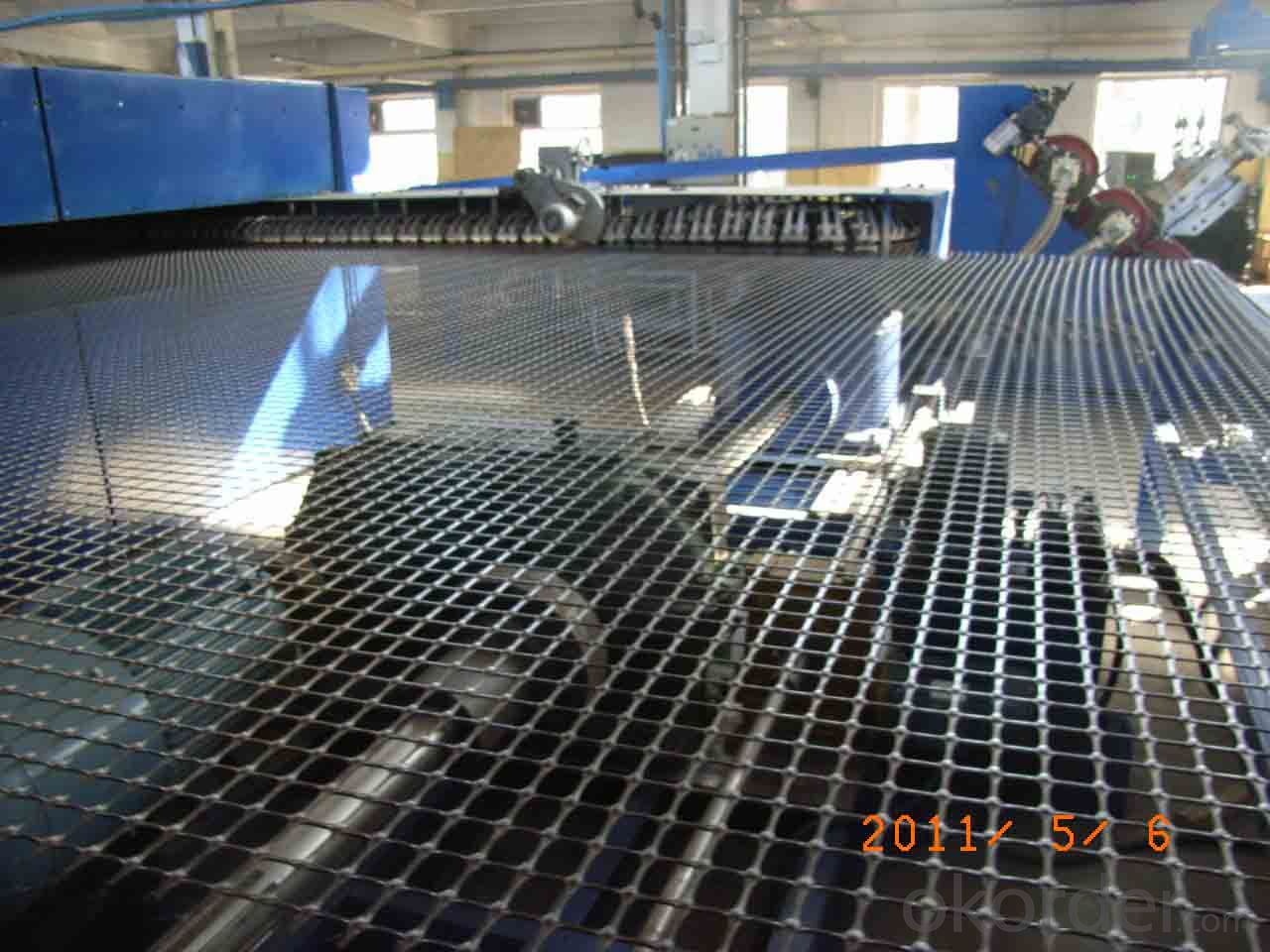
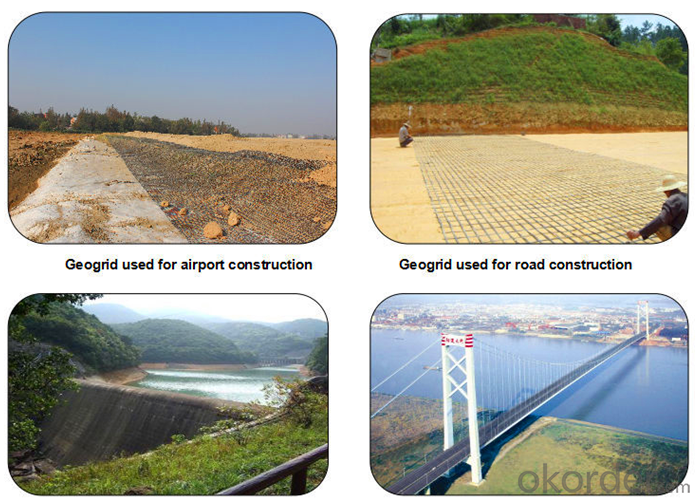
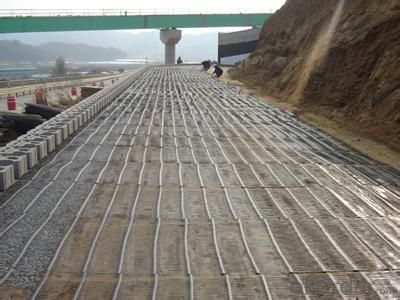
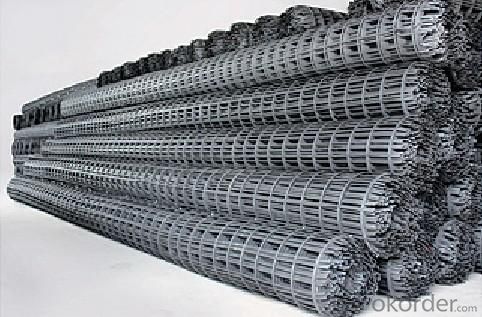
Polypropylene Plastic Biaxial Geogrids Specification:
Index Properties | Test Method | Unit | GG1515 | GG2020 | GG3030 | GG4040 | |
MD TD | MD TD | MD TD | MD TD | ||||
Polymer | -- | -- | PP | PP | PP | PP | |
Minimum Carbon Black | ASTM D 4218 | % | 2 | 2 | 2 | 2 | |
Tensile Strength@ 2% Strain | ASTM D 6637 | Kn/m | 5 5 | 7 7 | 10.5 10.5 | 14 14 | |
Tensile Strength@ 5% Strain | ASTM D 6637 | Kn/m | 7 7 | 14 14 | 21 21 | 28 28 | |
Ultimate Tensile Strength | ASTM D 6637 | Kn/m | 15 15 | 20 20 | 30 30 | 40 40 | |
Strain @ Ultimate Strength | ASTM D 6637 | % | 13 10 | 13 10 | 13 10 | 13 10 | |
Structural Integrity | |||||||
Junction Efficiency | GRI GG2 | % | 93 | 93 | 93 | 93 | |
Flexural Rigidity | ASTM D 1388 | Mg-cm | 700000 | 1000000 | 3500000 | 10000000 | |
Aperture Stability | COE Method | mm-N/deg | 646 | 707 | 1432 | 2104 | |
Dimensions | |||||||
Roll Width | -- | M | 3.95 | 3.95 | 3.95 | 3.95 | |
Roll Length | -- | M | 50 | 50 | 50 | 50 | |
Roll Weight | -- | Kg | 39 | 50 | 72 | 105 | |
MD denotes Machine direction. TD denotes transverse direction. | |||||||
FAQ
We have organized several common questions for our clients,may help you sincerely:
Q1: How about your company?
A1:Our company are one of the largest geosynthetic products supplier in the world.We have the products experience more than 20 years.Already export to USA/Germeny/Australia/Zambia/Brazil etc.more than 20 countries.Almost 10years.Our products including Geocell/Fiberglass Geogrid/Geomembrane/Geotextile/Geonet etc.
Q2.Does your products have good qualitity?
A2:Yes,we have do many big projects such as the 2008 Beijing Olympic BIRD NEST. Divert water from the south to the north project. And our products have CE certificate also.
Q3:How long can we receive the products after purchase?
A3:In the purchase of product within three working days, We will arrange the factory delivery as soon as possible. The pecific time of receiving is related to the state and position of customers.Commonly 15-20 working days can be delivery.
- Q: Can geogrids be used in water drainage applications?
- Yes, geogrids can be used in water drainage applications. They are commonly used to reinforce and stabilize soil in drainage systems, such as retaining walls, culverts, and embankments. Geogrids help to prevent soil erosion and improve the overall drainage efficiency by providing structural support and reducing the risk of soil movement.
- Q: How do geogrids improve soil stability?
- Geogrids improve soil stability by providing reinforcement and distributing the load more evenly across the soil. They increase the soil's shear strength and prevent excessive movement or deformation, making it more resistant to erosion, settling, and slope failures.
- Q: Can geogrids be used in reinforcement of mechanically stabilized earth bridge abutments on collapsible soils?
- Yes, geogrids can be used in the reinforcement of mechanically stabilized earth bridge abutments on collapsible soils. Geogrids are commonly utilized in such applications to improve the stability, strength, and load-bearing capacity of the soil. They help distribute the loads more evenly, reduce settlement, and prevent soil erosion, ensuring the long-term structural integrity of the bridge abutments.
- Q: Are geogrids resistant to temperature variations?
- Yes, geogrids are generally resistant to temperature variations. They are specifically designed to withstand a wide range of temperatures, from extreme cold to high heat, without losing their structural integrity or performance. This makes geogrids a reliable and durable solution for various engineering applications where temperature fluctuations are expected.
- Q: How to fill in the geogrid evaluation form
- Detection method and frequency in accordance with the requirements, the other reference to your command requirements!
- Q: Can geogrids be used in ground stabilization for wastewater treatment plants?
- Yes, geogrids can be used in ground stabilization for wastewater treatment plants. Geogrids are often used in such applications to reinforce and stabilize the soil, preventing erosion and ensuring long-term stability of the facility's infrastructure. They provide additional support to the ground, reducing the risk of settling and maintaining the integrity of the wastewater treatment plant's structures.
- Q: Are geogrids suitable for use in contaminated soil conditions?
- Yes, geogrids are suitable for use in contaminated soil conditions. Geogrids are made from high-strength materials that are resistant to chemical degradation, making them effective in stabilizing and reinforcing soil in contaminated areas. They provide strength and stability to the soil, preventing erosion and improving load-bearing capacity, even in contaminated soil conditions.
- Q: How to determine the number of geogrid detection method
- In the finished product cut at least 1 meters of the length of the geogrid, the radial shear of the 3, the zonal shear of the 3, and then tested, take its average value can be.
- Q: What are the long-term effects of using geogrids?
- The long-term effects of using geogrids include improved soil stability and increased load-bearing capacity, leading to reduced soil erosion and enhanced durability of structures. Additionally, geogrids can contribute to long-lasting pavement performance, reduced maintenance costs, and extended lifespan of infrastructure projects.
- Q: How to determine geogrid reinforcement or crack resistance
- Asphalt pavement cracking is one of the most common diseases in asphalt pavement in the world. No matter in the frozen area or in the non frozen area, the crack severity is different. The causes of asphalt pavement cracking and cracks in the form of a variety, but the main reason for the cracking of asphalt pavement, cracks can be divided into two categories, namely, the type of load cracks and non load cracks.The use of geotechnical materials to prevent asphalt pavement cracking effect is obvious. Selection of good resistance to erosion, dry shrinkage, temperature shrinkage coefficient is small, high tensile strength of semi-rigid material as the base, it is best to use the low temperature expansion coefficient of aggregate.High quality asphalt with good relaxation performance is used as the surface layer to ensure the penetration and ductility of asphalt. Certain additives or polymers should be used. In order to improve the low temperature crack resistance and high temperature stability of asphalt.
Send your message to us
CE Certified Polypropylene Plastic Biaxial Geogrids for Road Construction - Oklahoma USA
- Loading Port:
- Qingdao
- Payment Terms:
- TT OR LC
- Min Order Qty:
- 10000 g/m²
- Supply Capability:
- 600000 g/m²/month
OKorder Service Pledge
OKorder Financial Service
Similar products
Hot products
Hot Searches
Related keywords
